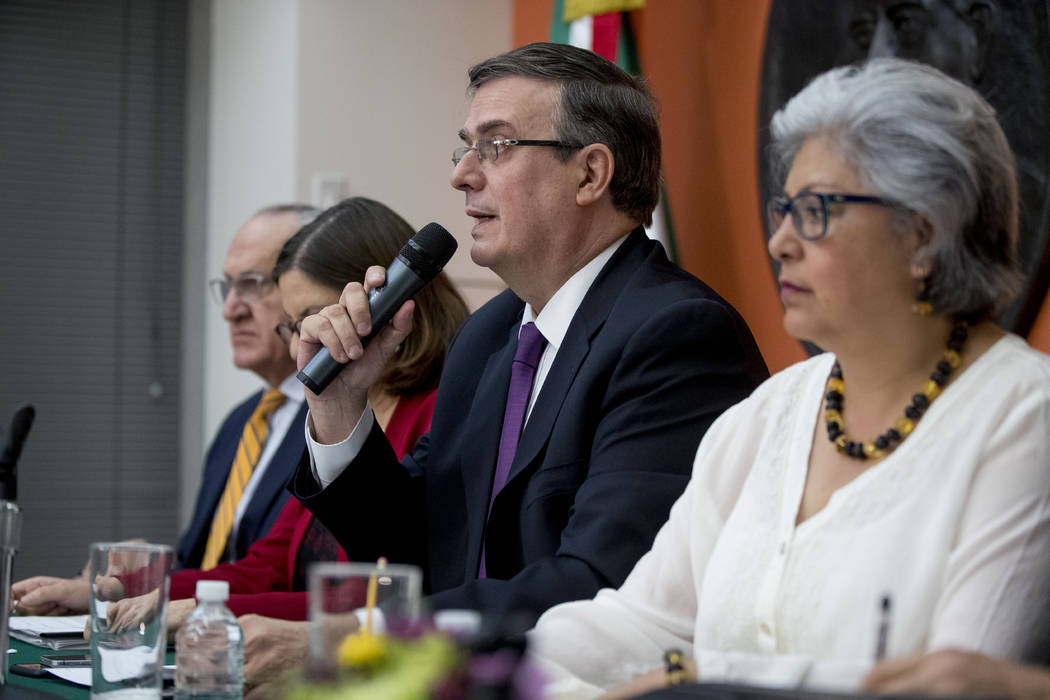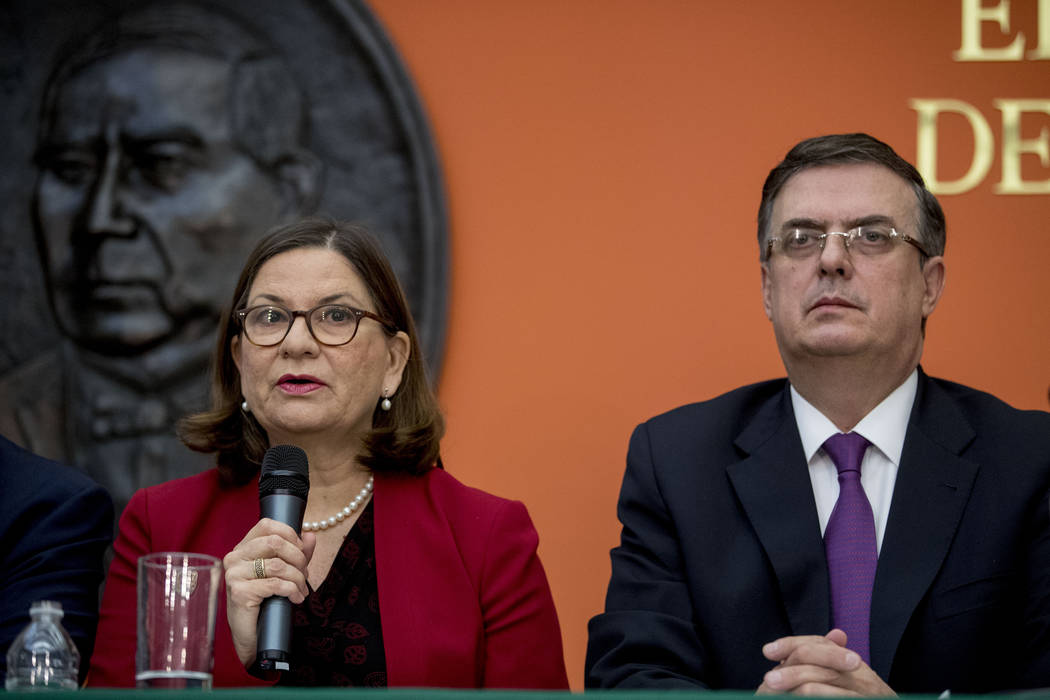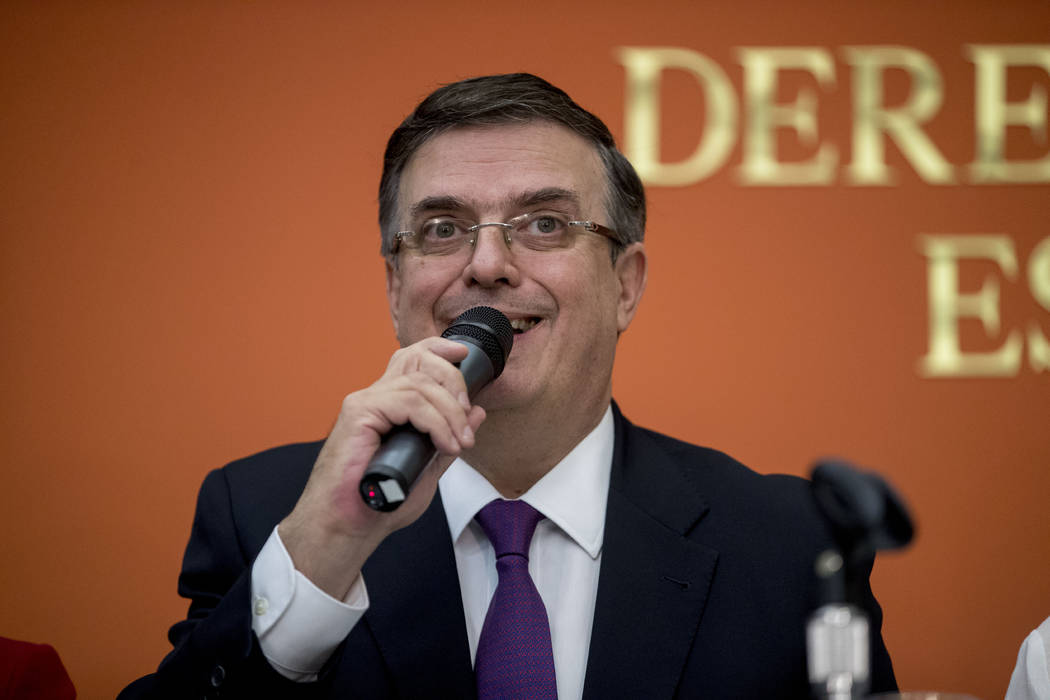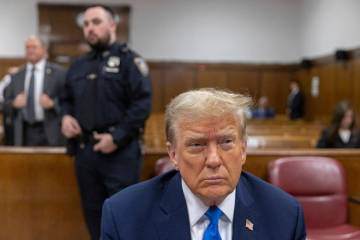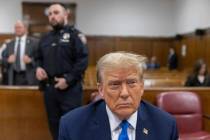Mexico says it believes a deal on tariffs can be reached
Mexico said Tuesday it thinks there’s likely to be an agreement with the United States this week that will avoid a 5% tariff on Mexican goods announced last week by President Donald Trump.
“By what we have seen so far, we will be able to reach an agreement,” Mexican Foreign Minister Marcelo Ebrard said during a press conference held at the Mexican embassy. “That is why I think the imposition of tariffs can be avoided.”
Ebrard added that despite his optimism, his team also will be ready for a non-agreement scenario.
Ebrard arrived in Washington over the weekend to meet Wednesday with Secretary of State Mike Pompeo. Mexico calls the potential tariff hurtful to both economies and useless to slow down the flow of Central Americans migrating north.
Mexico plans to stick to its usual strategy of not mixing the topic of migration with trade while negotiating. “We are not willing to mix them,” Ebrard said.
Trump says he’ll impose the tariff beginning June 10 to force Mexico to keep mostly Central American migrants from crossing into the United States.
What will be enough?
It is unclear what more Mexico can do — and what will be enough — to satisfy Trump, because the United States has not presented concrete benchmarks to assess whether the U.S. ally is stemming the migrant flow from Central America.
“As a sign of good faith, Mexico should immediately stop the flow of people and drugs through their country and to our Southern Border. They can do it if they want!” Trump tweeted Monday from London.
Trump’s Republican allies warn that tariffs on Mexican imports will hit U.S. consumers, harm the economy and jeopardize the new United States-Mexico-Canada Agreement trade pact that the White House wants Congress to approve.
Texas Republican Senator John Cornyn warned Monday about the consequences of imposing tariffs.
“We need to put our heads together and try to come up with a solution,” he said.
The diplomatic counteroffensive launched by Mexico this week includes a Tuesday meeting of trade negotiator Jesus Seade with U.S. trade representative Robert Lighthizer.
The tariff threat comes just as the administration has been pushing for passage of the USMCA, which would update the North American Free Trade Agreement.
Mexico and Canada already started the ratification process of the deal through their own Congress.
Ross meets with Marquez
U.S. Commerce Secretary Wilbur Ross met Monday with Mexican Economy Minister Graciela Marquez. Afterward, Ross said the two had discussed the tariffs and the “next steps” for the trade pact. “I reiterated the president’s message that Mexico needs to do more to help the U.S. address immigration across our shared border,” Ross said in a statement.
Delegations led by Secretary of State Mike Pompeo and Foreign Relations Secretary Marcelo Ebrard will also meet in Washington.
Marquez told reporters her team is assessing potential reprisals in case the diplomatic efforts do not bear fruit this week. “We will have to make a strategic plan to take into consideration many elements,” she said.
Agricultural trade between the United States and Mexico was worth about $130 million a day last year, according to Mexican Secretary of Agriculture Victor Villalobos. A 5% U.S. tariff would decrease that trade by $3.8 million a day, he said.
Trump usually backs off
Trump has been here before, issuing high-stakes threats, only to back off come crunch time.
Trump claims Mexico has taken advantage of the United States for decades but that the abuse will end when he slaps tariffs on Mexican imports. His frustration with the flow of migrants is nothing new, but it’s a subject he often returns to, as he did last week after special counsel Robert Mueller’s rare public statement on the Trump-Russia report.
The president said last week that he will impose the tariffs to pressure the government of Andres Manuel Lopez Obrador to block Central American migrants from crossing the border into the U.S. Trump said the import tax will increase by 5% every month through October, topping out at 25%. It swiftly refocused attention on the border issues.
‘Deadly serious’
Mick Mulvaney, the acting White House chief of staff, said on “Fox News Sunday” that the president is “deadly serious.”
Still, Mulvaney acknowledged there are no concrete benchmarks being set to assess whether the U.S. ally is stemming the migrant flow enough to satisfy the administration. “We intentionally left the declaration sort of ad hoc,” he said.
“So, there’s no specific target, there’s no specific percentage, but things have to get better,” Mulvaney said. “They have to get dramatically better and they have to get better quickly.”
Uneasy about tariffs
GOP Sen. John Kennedy of Louisiana, called the tariffs a “mistake” and said it was unlikely Trump would impose them.
Republicans on Capitol Hill and GOP allies in the business community have expressed serious unease with the tariffs. Some see this latest threat as a play for leverage and doubt Trump will follow through. Earlier this year, Trump threated to seal the border with Mexico only to change course.
Florida GOP Sen. Marco Rubio tweeted that the situation at the border was “unsustainable.” But he said he was “hopeful this can be resolved” without Trump using his authority to impose tariffs.
Republicans have repeatedly tried to nudge Trump away from trade wars and have specifically questioned the White House’s ability to rely on executive authorities to impose some of them as national security issues.
At the same time, Trump’s efforts to revamp immigration laws have drawn little support in the Congress.
“I think what the president said, what the White House has made clear, is we need a vast reduction in the numbers crossing,” Kevin McAleenan, acting secretary of the Department of Homeland Security, said on CNN’s “State of the Union.”
Mulvaney, who also appeared on NBC’s “Meet the Press,” said Mexico could take various steps to decrease the record numbers of migrants at the border.
He suggested the Mexican government could seal its southern border with Guatemala, crack down on domestic terrorist organizations and make Mexico a safe place for migrants seeking to apply for asylum.
Economists and business groups are sounding alarms over the tariffs, warning that they will impair trade and increase the costs of many Mexican goods that Americans have come to rely on.
But Mulvaney played down those fears, saying he doubts business will pass on the costs to shoppers. “American consumers will not pay for the burden of these tariffs,” he said.
———
AP correspondent Mark Stevenson in Mexico City contributed to this report.



